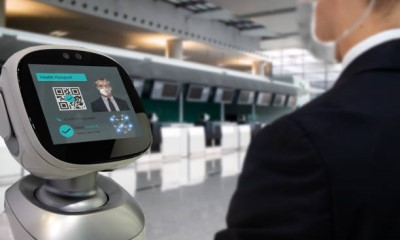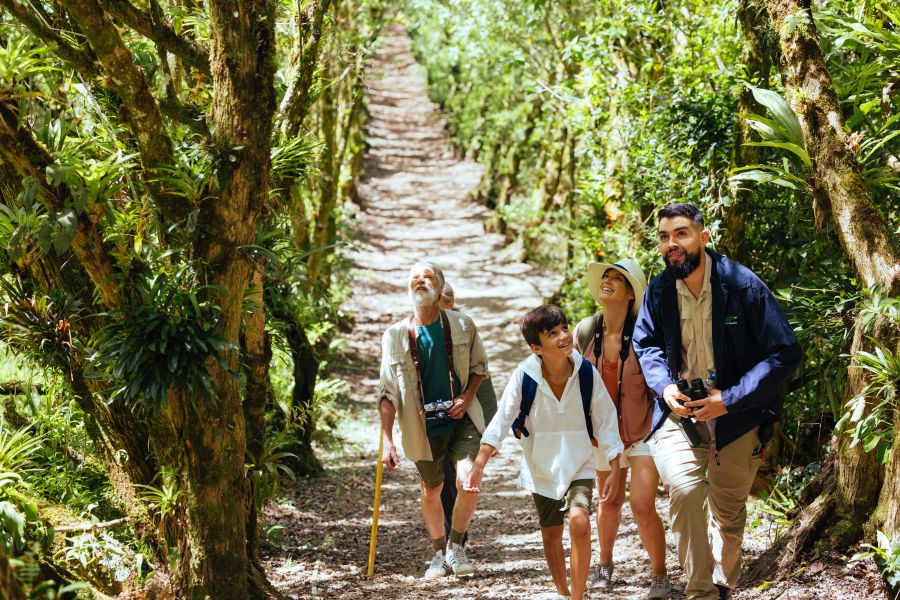The idea of a technological revolution in travel is no longer an assumption. Over the next 12 months and beyond, we are likely to see a continuing shift in the way we travel. New tools, solutions and knowledge, as well as easier passage through airports and the ability to travel with less luggage, are clear trends.
As global travel increases, corporate and individual travellers have higher expectations than ever for a seamless travel experience. Our industry is rapidly evolving to meet ever-changing demands.
Amadeus, the leading travel technology company, has published its annual “Amadeus 2023 Travel Trends” and identifies five developments that will influence the shape of travel in the coming year.
All of the trends are linked to personal and societal concerns, from the desire to travel with a lighter environmental footprint to the ability to work from anywhere.
It’s travel, but not as we know it
Travellers will be able to have more intense cultural experiences in an online world, exploring virtual concerts and exhibitions. Technology also offers enormous potential for pre-trip assistance and ‘try before you buy’, which will create a greater desire to travel and increase enthusiasm. This will become increasingly popular as a way of trying out more expensive products and services, such as luxury cruises. This exploration, made possible in part by the Metaverse, will allow travellers to explore a destination before they arrive or to relive their memories when they return.
Walt Disney Co. plans to create a real-world theme park attraction that incorporates a parallel experience in a 3D virtual world, while Seoul is leading the way with plans to go ‘meta’ in 2023 with a platform called ‘Metaverse Seoul’. Qatar Airways, meanwhile, recently unveiled Qverse with a MetaHuman cabin crew, offering an immersive experience for touring, navigating and checking in at Hamad International Airport.
Smile for a seamless travel payment experience

Biometric payments – via ApplePay and GooglePay – are now commonplace for payments in local shops as well as when travelling. In the coming years, travel is expected to further accelerate the development of biometric payments. Airports are already using biometrics for travel document identification. The next logical step is to leverage this identity verification for any payment made by travellers during their journey.
Travellers will no longer have to take out their wallets to pay for a business class upgrade. If a traveller uses biometrics for check-in, baggage drop-off and boarding, these identity checks could be extended to any in-flight payment, such as adding a meal on board, providing a seamless payment experience. The use of biometrics will allow airports and tour operators to offer the traveller a secure and convenient contactless payment experience at all stages of the journey.
Trials have already begun with travel retailer Hudson. In this regard, the company has been using the Amazon One biometric payment solution in its Nashville International Airport shop, allowing customers to pay with the palm of their hand.
Travelling light
The combination of carbon footprint-conscious customers and the cost of checked luggage means that travellers are carrying less luggage. Stacks of branded suitcases are no longer a status symbol – quite the opposite.
Hotels and resorts are increasingly offering rental of bulky items such as sports equipment and technical clothing. Some also offer additional options with local suppliers. In addition, travellers are looking to purchase essential items in the local destination, allowing them to support and interact with local communities.
Global chains such as Hilton, Westin or Sheraton, for example, are already offering sports equipment for hire, helping travellers move closer to a ‘suitcase-free holiday’.
Working from anywhere

Remote workers will increasingly adopt a nomadic lifestyle, migrating to different locations. We will see the workforce spending less time at home due to the widespread formalisation of ‘work at home’ policies in companies.
Workers will choose to spend time with friends and family at home or work temporarily abroad. On the government side, we will see a steady increase in countries encouraging the arrival of digital nomads through visa schemes and various incentives.
Countries like Georgia, Croatia, Iceland and Germany, Colombia have already created official programmes to attract digital nomads. Nomadlist is a platform that connects a global community of remote workers living and travelling around the world, helping them find competitively priced places to work.
Welcome to team outings

Business travel is back, but with a difference. In recent years, many companies have introduced remote working policies. This has brought with it the challenge of team building and collaboration. As a result, we are seeing an increase in team travel plans, where teams come together with the aim of strengthening their relationships.
American Express Global Business Travel has even published a paper entitled “Why business travel is the centre of the new business culture“. Now that the employee experience is more important than ever, team travel programs will grow exponentially. They are a great way to motivate teams, improve employee satisfaction, strengthen company loyalty and unleash creativity.
Source: Amadeus








